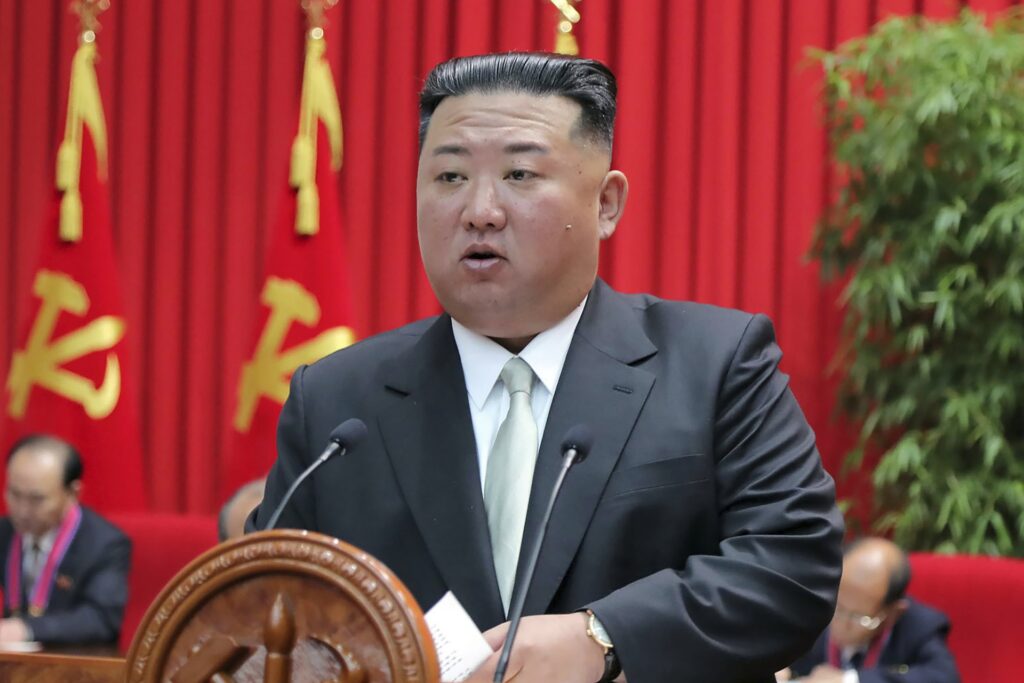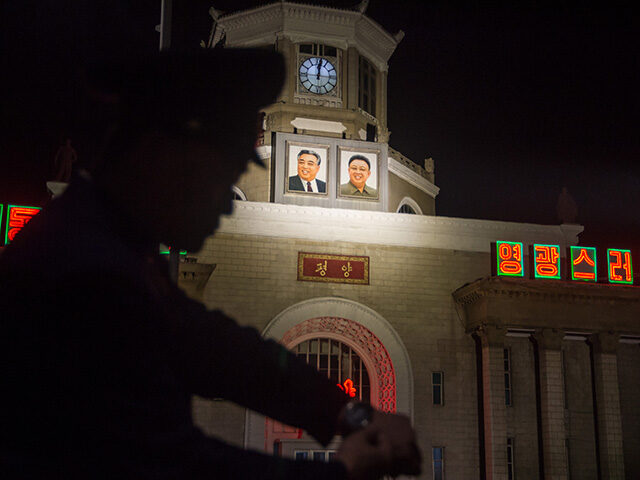A provincial North Korean government official told Radio Free Asia (RFA) on Friday that subjects of the psychotic dictatorship are increasingly critical of police corruption, and in dozens of cases, police officers have been physically confronted or assaulted.
This would be a remarkable development for a despotism that needs very little prompting to imprison or murder its own subjects.
Disgruntled North Koreans are lashing out against police corruption by openly protesting against them and in some cases beating officers, according to a local government official who saw a secret document detailing the cases. https://t.co/DpeEEtOyN8 pic.twitter.com/hgqKPiziGo
— Radio Free Asia (@RadioFreeAsia) June 4, 2023
According to the official, who requested anonymity for his own safety, the government of Ryanggang province prepared a classified report on the growing frequency of citizen protests and attacks against the police. The secret document detailed “dozens of incidents of people protesting against the tyranny of police, or even extracting revenge by beating them up.”
The official related one such incident to RFA:
“A resident from Paegam county and his son cornered a police officer on the roadside and he inflicted severe bruises on the officer’s head,” the official said.
“It was said to be revenge for the officer insulting his wife by treating her like a criminal in her workplace by forcing her to confess that she was responsible for a loss that occurred at her workplace,” he said.
Residents of Ryanggang accused the police of enacting “all kinds of tyranny under the pretext of law enforcement,” evidently including a good deal of bullying behavior and protection racketeering at marketplaces.
“To see a weak woman directly confronting a police officer while he was on duty would have been unimaginable in the past,” one resident said of the scuffles breaking out between shopkeepers and the corrupt cops trying to shake them down.

In this photo provided by the North Korean government, North Korean leader Kim Jong Un gives a lecture at the Central Cadres Training School in North Korea on October 17, 2022. (Korea News Service via AP)
The secret provincial document reportedly described highway police officers extorting fuel and cash from motorists. During one such traffic stop, an enraged driver ran over the policeman’s motorcycle with his car and then beat the officer unconscious.
RFA noted that the North Korean central government appears to be aware of the problem and has responded with measures such as indoctrination sessions to teach unquestioning obedience to law enforcers, plus enhanced penalties for those who attack them – but the wave of violence against the police is growing.
“Some of my friends insist that if a war breaks out, they will go out and kill the police first. The people’s patience seems to be reaching its limit,” RFA’s provincial government contact said, suggesting the police might be serving as underpaid, demoralized proxies for mounting anger against the Kim regime.
NK News observed last July that the North Korean police are highly vulnerable to corruption thanks to the horrific national economy and overwhelmed with their duties because “nearly every kind of economic activity regularly encountered in North Korea is, strictly speaking, illegal.”
Prior to the early 1990s, according to NK News, North Korea’s civil service bureaucracy functioned well enough to make police corruption a relatively minor problem. Those who took bribes found “little use for this money,” because the central State allocated all resources, so there was nowhere to spend the ill-gotten gains.
On the other hand, dependable officers had a good chance of securing promotions and the attendant benefits, “so it made sense to be a zealous enforcer of government orders and avoid taking bribes.”
What made this nominally functional law enforcement system of Communist tyranny collapse was the loss of foreign aid, as the Kim dynasty piled up human rights violations and relentlessly pursued its nuclear ambitions.
Without outside support, the regime became a basket case, unable to deliver rations and benefits to any but the highest-ranking elite officials. A black market with good reasons to pay off the cops appeared and corrupt officers who suspected “the state would not reward their zeal” suddenly had somewhere to spend their bribe money.
The police were reportedly not just paid to look the other way while black marketeers plied their trade – they became an indispensable component of the underground economy because ordinary people are not allowed to move freely around North Korea. Only by hiring the police could black market merchants travel around the country to purchase goods for resale, including smuggled goods from China. A new, unwritten system of law appeared, informing merchants of what activities the police could be paid off to indulge or even assist with, and which were too ideologically dangerous to be allowed for any price. Bribery became a sort of informal tax system.
NK News provided the interesting detail that beginning around 20 years ago, some corrupt police officers stopped merely taking bribes and, in effect, became black market bosses themselves, using civilians and even their own family members to do business or becoming stable partners for illegal sales operations. As government officials, the police themselves would have been severely punished for engaging in forbidden capitalism but using proxies helped them work around that formidable obstacle.
The sea change in public attitude described by RFA’s source would be interesting in light of that history, suggesting that perhaps the North Korean police are either desperate enough for cash to squeeze their private “partners” too hard, or they have grown arrogant after two decades of ruling over the shadow economy they were supposed to prevent.

COMMENTS
Please let us know if you're having issues with commenting.